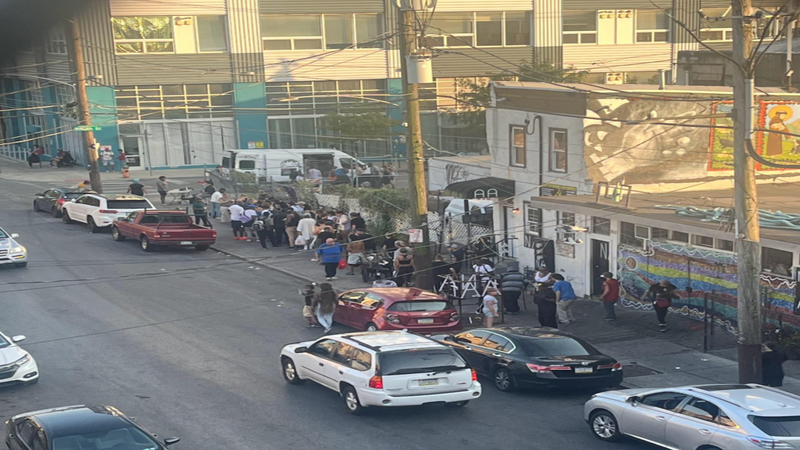
PHILADELPHIA (KYW Newsradio) — City Council is expected to vote at Thursday’s session on a long-delayed bill that would put strict limits on mobile health service providers in drug-ravaged Kensington, after the sponsor made major changes at last week’s meeting.
The bill pits Councilmember Quetcy Lozada against providers who use a strategy known as “harm reduction” in serving people suffering addiction. It languished in City Council for several months as Lozada sought a compromise.
After meeting with residents, providers and other stakeholders, she essentially gutted the original bill, which had called for a total ban on mobile services in her district. The new language calls for permits that distinguish between medical and non-medical providers, and assigns two areas where they can operate. Non-medical providers, such as food or needle exchange services, would be limited to 45 minutes in any one spot.
“I’m proud to say that this bill represents thoughtful, informed and community-centered input,” Lozada said. “It reflects the voice of residents. It prioritizes residents, business owners, children, the police and experts.”
🎧 RELATED
Lozada introduced the bill last September as the city was gearing up its first serious attempt in decades to enforce drug laws in Kensington. The bill cites a litany of ills arising from the congregation of mobile service providers.
“The accumulation of plastic waste, human waste, discarded drug paraphernalia, discarded pills, medical supplies, and various other items on their residential streets, which pose a danger to children, the environment, public health, and the dignity of our communities,” the bill reads. “Increased social conflict and confrontation, caused by some recipients of mobile services who engage in nuisance and criminal activity, including conduct carried out on nearby residents’ porches, front steps, or in their backyards; and exposure of their children to traumatic and frequently unsafe conditions.”
Providers testified that they still are not happy, even after the changes.
“It still operates from a framework of control and punishment, not health and humanity,” said opponent Sam Piper. “In the name of dignity for one group, it strips dignity from another. People will not stop needing care just because it’s harder to provide, but they may die trying to find it.”
Another opponent chided Lozada for spending “her time and energy restricting mobile services rather than putting more trash cans or public toilets in her district.”
🎧 RELATED
Lozada defended the bill.
“The Kensington community has suffered for a really long time and they don’t deserve to continue to live in a neighborhood that is occupied, often right on their front steps,” she said. “We are doing things differently.”
She dared the providers to move their services closer to their own homes.
“If folks want to take some of these individuals home with them, I have sign-up sheets,” she added. “Create a space among your family in your neighborhood.”
🎧 RELATED
She also chided her own colleagues, though not by name. She said her staff tried to brief members on the bill but were rebuffed by some.
“My staff is always extremely respectful to everyone in this legislative body and to your staff,” she said. “It’s unfortunate that some people can’t reciprocate that.”
Councilmembers Rue Landau, Kendra Brooks and Nic O’Rourke voted against the amendments, signaling that they intend to vote against the bill. Only nine votes are needed to pass the bill.
The bill is vague on the new permitting process, leaving it to Mayor Cherelle Parker’s administration to figure out how to determine a medical from a non-medical provider.
Penalties for violating the bill, if it becomes law, include a $1,000 fine.
Correction: The original version of this story misstated the names of the council members voting against the amendments.
